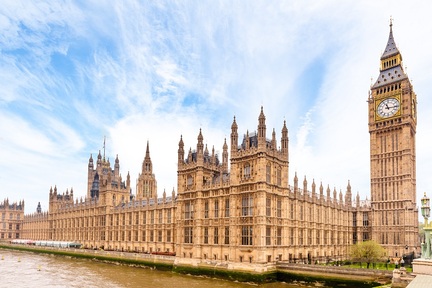New Health and Care Bill to be introduced to Parliament today
A package of measures to improve oversight and accountability in the delivery of social care services will be laid out in Parliament today, the government has said.

The new Health and Care Bill will implement changes set out by the government in February 2021. Its introduction in Parliament today follows extensive discussions with NHS England, the Local Government Association and the health and care sector to refine this blueprint.
The Bill will ensure each part of England has an Integrated Care Board and an Integrated Care Partnership responsible for bringing together local NHS and local government, such as social care, mental health services and public health advice, to deliver joined up care for its local population.
Health and Social Care Secretary Sajid Javid said: “The astonishing response of our health and care services to the Covid-19 pandemic has hit fast-forward on some of the bold changes the NHS set out to deliver in its Long Term Plan and shone the spotlight on other areas that require change to achieve better care for our communities.
“To help meet demand, build a better health service and bust the backlog, we need to back the NHS, as it celebrates its 73rd birthday this week, and embed lessons learned from the pandemic. This will support our health and care services to be more integrated and innovative so the NHS can deliver for people in the decades to come.”
'Care England has identified where the Health and Care Bill needs to be bolstered in order to assist integration'
COVID-19 has reinforced the need for closer collaboration between the NHS, local authorities and care providers to provide more joined up working, and staff and patients have rapidly adopted new technologies to deliver better care. But at times in recent years the legal framework has made this more difficult, as it was not designed with this type of collaboration in mind.
Clinicians, carers and public health experts will be empowered to operate collaboratively across health and care, as part of plans to tackle inequalities and level up health across the country.
Professor Martin Green, chief executive, Care England said: “Care England has identified five main areas where the Health and Care Bill needs to be bolstered in order to assist real integration between health and social care.
“Firstly, adult social care providers, for profit and not for profit, need to be directly represented on ICS NHS and Partnership Boards. Secondly, there must be a ten year workforce plan that addresses adult social care. Thirdly, the framework around assessment of local authorities to be subject to consultation and moreover created as well as co-produced by providers. Fourthly, every ICS needs to fulfil a certain level of awareness and understanding of adult social care. Lastly, social care plans need to be produced by the Prime Minister before ICS’ come into effect.
“Care England will be working with Parliamentarians as the Bill makes progress through both Houses of Parliament.”
'These pragmatic reforms will help tackle health inequalities and speed the recovery of care'
The Bill builds on the proposals for legislative change set out by NHS England in its Long-Term Plan, while also incorporating valuable lessons learnt from the pandemic that will benefit both staff and patients.
It will dispose of unnecessary bureaucracy that has held the health service back so that health and care staff can focus on patients, not paperwork, and ensure the system is able to flex to changing needs in the years to come. It will ensure NHS England is more accountable to government, and by extension Parliament, while ensuring the NHS retains everyday operational and clinical oversight.
Sir Simon Stevens, NHS chief executive: “This Bill contains widely supported proposals for integrated care, which have been developed and consulted on over recent years by the NHS itself. They go with the grain of what our staff and patients can see is needed, by removing outdated and bureaucratic legal barriers to joined-up working between GPs, hospitals, and community services.
"In doing so, these pragmatic reforms build on the sensible and practical changes already well underway right across the NHS. And by enabling mutual support between different parts of the local health and care services they will undoubtedly both help tackle health inequalities and speed the recovery of care disrupted by the covid pandemic."
Latest News
 29-Jul-24
Dementia Bus gives carehome.co.uk staff insight into life with dementia
29-Jul-24
Dementia Bus gives carehome.co.uk staff insight into life with dementia
 01-Mar-24
Find out the top care homes in 2024
01-Mar-24
Find out the top care homes in 2024
 21-Mar-23
UK's top care homes in 2023 revealed
21-Mar-23
UK's top care homes in 2023 revealed
 03-Jan-23
carehome.co.uk launches free care helpline
03-Jan-23
carehome.co.uk launches free care helpline
 13-Dec-22
5 mins with Emily Whitehurst, chief operating officer for Constantia Healthcare
13-Dec-22
5 mins with Emily Whitehurst, chief operating officer for Constantia Healthcare